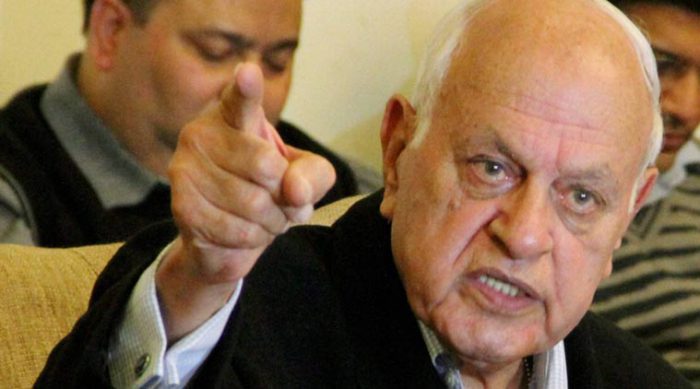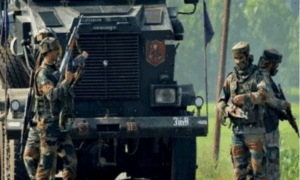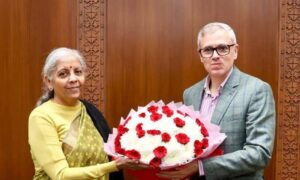
Picture Courtesy : The Indian Express
Former Jammu and Kashmir Chief Minister Farooq Abdullah has said the Opposition and the public will challenge any move to repeal Article 35A of the Constitution, which grants special privileges to the state’s permanent residents, PTI reported.
According to various media reports, Leaders of a number of parties, including the Congress and the Communist Party of India (Marxist), as well as independent ones attended a meeting on Monday to discuss the controversy. Abdullah, the president of the National Conference had called for the meeting.
“When it will come to that decision [the repeal of Article 35A], you will see this mass rising of people,” he told reporters after chairing the meeting. “Do not forget that when the Amarnath Yatra land transfer controversy had happened in 2014, people rose overnight. So [repealing] Article 35A will be far greater revolt, and I wonder whether the government will be able to control that.”
Abdullah further alleged that the Bharatiya Janata Party and the Rashtriya Swayamsevak Sangh had conspired to erode the special status of Jammu and Kashmir.
WHAT IS ARTICLE 35A?
Article 35A accords special power to Jammu and Kashmir Assembly for framing laws to give privileges and rights to the residents of the state. It entitles the Assembly to define Permanent Residents of Jammu and Kashmir.
Such laws framed exercising the powers under Article 35A cannot be challenged for being in violation of fundamental right to equality of Indian citizens from other states.
WHO ARE PERMANENT RESIDENTS?
Exercising its powers under Article 35A, the Jammu and Kashmir Assembly defined Permanent Resident as a person who was a state subject on May 14, 1954 or who had been a resident of the state for 10 years and has “lawfully acquired immovable property in the state.”
A person who is not a permanent resident of Jammu and Kashmir is not allowed to vote in state Assembly election or contest election to the state Assembly.
The state also framed laws exercising powers granted by Article 35A to bar an outsider from buying property in or from settling in Jammu and Kashmir. Such a person cannot get a job in the Jammu and Kashmir government.
In effect, Article 35A has given Jammu and Kashmir its present demographic composition making it the only Indian state with Muslim majority. The RSS believes that the Kashmir issue can only be resolved by changing the demographic composition of the state, effectively of the Valley.


















